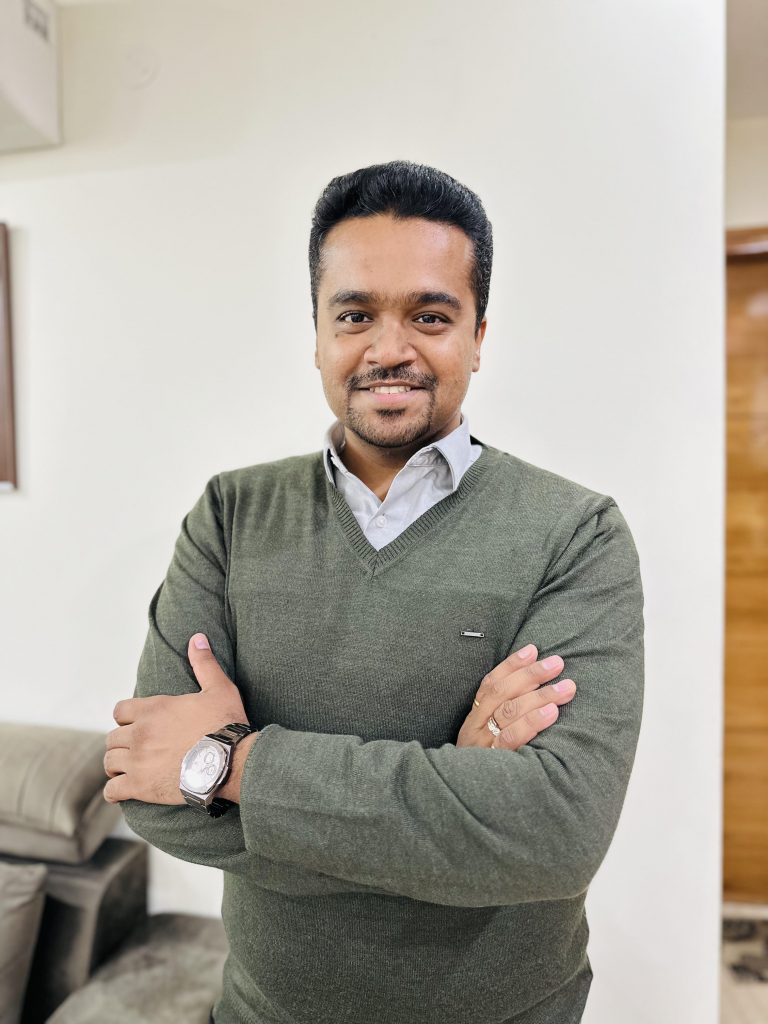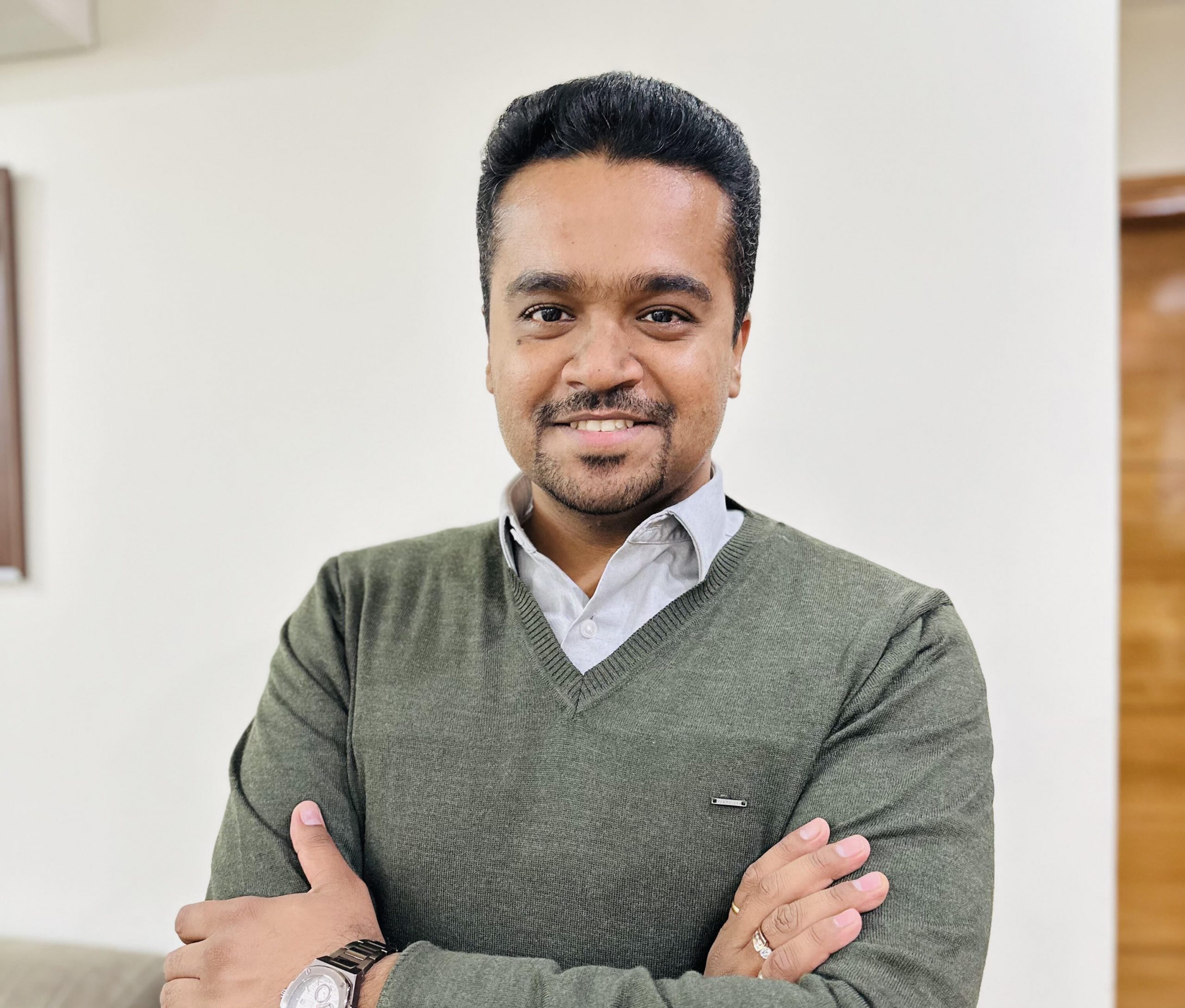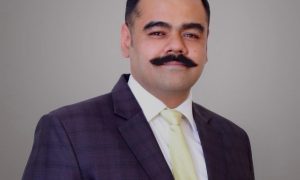This interview has been published by Anshi Mudgal and The SuperLawyer Team

With nearly a decade of experience in civil litigation, arbitration, and related fields, what initially motivated you to pursue a legal career, especially in the area of dispute resolution?
My initial motivation came from my neighbours in my hometown. Literally, every house has a name board with an Advocate written on it and this used to fascinate me a lot. Moreover, I honestly always thought that this is some kind of an easy money-making profession, I was clearly mistaken. I always thought that resolving conflicts through a structured framework inside a court room will be very exciting. My parents were very supportive when I told them that I want to be a lawyer. They supported me in my decision to move out and start a fresh life in Delhi as well. Initially it was a little tough for me, as coming from a small city with no background in legal fraternity, I had to face some challenges.
After a couple of years in the profession, I was curious to know more about Alternate Dispute Resolution and this intrigued me because it not only requires a grasp of the law but also strategic thinking and negotiation skills to achieve amicable solutions. I witnessed situations where unresolved disputes led to prolonged challenges and dirty legal battles so I think Dispute Resolution is one of the best ways for a peaceful settlement.
Having earned your Master of Laws (LL.M) in International Dispute Resolution from King’s College London, with a focus on International & Commercial Arbitration, how did this advanced education influence your approach to handling complex international disputes? Additionally, what were the key criteria for admission to this prestigious institution, and what made you choose it over other options?
Pursuing LL.M in International Dispute Resolution from King’s College London significantly enhanced my ability to analyse complex international disputes. It gave me a lot of confidence in life personally and professionally as well. The program’s curriculum, exposure to diverse legal systems, and interactions with global legal practitioners and intellectual minds helped me develop a well-rounded perspective. I strongly feel that going for a Master’s that too after some work experience was one of the best decisions I ever made. Since I had some professional experience, I was able to relate more and indulge more in discussions with students from around the globe.
Admission to King’s required a good academic record, a compelling personal statement, and a clear vision of professional goals. To some extent my work experience and letters of recommendation from my mentors also helped a lot. I chose King’s over other institutions for its unparalleled reputation in Law, especially in Dispute Resolution and obviously I didn’t want to miss out the opportunity to study in a city that serves as a hub for international legal practice.
Starting your career in 2015 and accumulating over nine years of legal experience, what were some of the challenges you faced in the early stages of your career? Could you share specific experiences that significantly contributed to your growth as a legal professional?
Being a first-generation lawyer with no background in the legal fraternity, I had to face a few challenges that too in a city like Delhi where I hardly knew anyone in the profession at that point of time. I think the biggest challenge was to survive with minimal resources at a salary of INR 12,000/- per month. It was all very new and overwhelming for me. I had no idea how this profession is going to treat me and how am I going to survive on my own. However, God has always been kind and I truly feel blessed for getting some great helping hands during the initial days of my career. As far as growth in this profession is concerned, I realised that you can only grow in the legal field if you start being honest to yourself, start respecting your seniors and stop comparing yourself with others in the profession. These three key points should never be neglected by young lawyers. Of course, having a good drafting or communication skills, networking etc. helps but realising your own worth by not comparing yourself and by being honest with yourself and by giving respect without any expectations will surely take you to heights.
On a lighter note, reading your files properly and being punctual in court will also help you grow in the profession.
In your current role, you manage high-stakes cases for various significant clients. What is your approach to handling complex litigation matters, and how do you strategize for optimal client representation? Additionally, what do you believe is the most important skill for law students to develop if they want to pursue a career in litigation?
While handling high-stakes cases, I prioritize a deep understanding of the client’s objectives and the legal landscape. My approach involves deep research, anticipating opposing strategies, and clear communication with clients to align on tactics. I also strongly feel that discussing all aspects of the matter internally with your team helps a lot. A junior most lawyer in your team can also give you one of the best advices, which is why discussing with the team and involving your team members while stargazing your next move is highly recommended.
For aspiring litigators/young lawyers, I would suggest to be very patient, calm and diligent reader. Reading with a calm mind can solve most of your issues as it will give you clarity and understanding of what needs to be done and what you need to avoid. Getting into a habit of reading judgments, research papers, articles etc. can be of a great help. Apart from this, I think being vocal in a polite way is also very important in the profession. This will upgrade your confidence and increase your participation in various discussions which will ultimately help you in enhancing your court skills.
You manage a team of senior advocates and advocates, how do you ensure a consistent workflow and minimize burnout? Additionally, what key values do you prioritize when selecting team members?
I treat everyone in the team equally and make sure that we work together as a team on the assigned matters. I prioritize establishing clear processes and maintaining open communication to ensure consistent workflow. I avoid acting like a senior and create unnecessary urgencies. I usually begin by understanding the unique strengths and expertise of each team member and assign tasks accordingly. This ensures that each team member is working in their area of proficiency.
Additionally, we encourage the team to maintain meticulous documentation of their work, ensuring continuity even when team members are unavailable due to court appearances or other commitments. By fostering a collaborative culture, we ensure that the workload is evenly distributed, and knowledge-sharing becomes a norm. I believe that a healthy work environment is crucial for delivering quality results consistently. To achieve this, it is important to encourage family/personal time and equal distribution of work among all team members. I also encourage the team to maintain work-life balance by respecting personal time and being flexible with deadlines whenever possible.
To create a positive and motivating atmosphere, I make it a point to recognize and celebrate accomplishments, both big and small.
While building a team, we should prioritise integrity, collaboration, and a strong sense of responsibility. Integrity is non-negotiable in the legal profession as it directly impacts our credibility and the trust of our clients. One needs to be respectful towards seniors in the profession in order to make it big in the profession. It often makes me wonder why the sense of respect and integrity we had earlier is now missing in the young lawyers. I strongly feel that it is high time for them to realise the importance of working respectfully as a team so that they can individually grow professionally and personally both.
Given your expertise in arbitration, what do you consider the most crucial challenge while dealing with complex commercial or international disputes? How do you think the Indian dynamics are changing when it comes to arbitration in disputes?
The most crucial challenge in arbitration is ensuring enforceability of awards, especially in cross-border disputes and emergency arbitration. Another significant hurdle is managing jurisdictional complexities while balancing client interests. In India, arbitration is undergoing a transformation with legislative reforms and increasing reliance on alternative dispute resolution mechanisms. These changes are fostering a more arbitration-friendly environment. India still has a long way to go especially when it comes to enforceability issues, but I am sure we are on the right path and we will soon be known for our laws on dispute resolution.
In your opinion, what are the major challenges faced by Indian lawyers seeking to specialize in international dispute resolution? What advice would you offer to those aiming to pursue a similar career? Also, could you recommend any resources you use to stay updated with legal trends in this ever-evolving field?
Indian lawyers specializing in international dispute resolution often face challenges like limited opportunities for global exposure and the need for in-depth understanding of foreign legal systems. Indian universities have very less focus on international laws and not everyone can afford to study abroad. When I was in college, I had no idea of the New York Convention or International Settlement of Investment Disputes. All this was introduced to me only when I started working and when I did my research on the international dispute resolution while deciding to go for an LL.M. My advice to all young lawyers looking forward to a career in international dispute resolution is to seek internships with firms involved in international arbitration, build a robust network, and pursue certifications in international law. Attending various webinars and reading about development in international laws can also help a lot in your personal and professional growth.
With a career that blends legal practice and involvement in high-profile legal matters, how do you balance professional responsibilities with personal growth? What keeps you motivated to excel in such a demanding and fast-paced field?
Balancing professional responsibilities with personal growth requires disciplined time management and prioritization. I dedicate time to self-reflection and continuous learning through reading and networking. One should always know where to draw a line and should not raise any false expectations which may become a hurdle in your professional growth. What keeps me motivated is the knowledge that my work contributes to shaping fair and just outcomes, alongside the intellectual challenges and dynamic nature of the legal field. Even after a little more than 9 years of experience, I still learn something new everyday and my mind gets more curious to know about other facets of law and I think this is one of the best things of our profession.
Get in touch with Shivam Chanana –


























